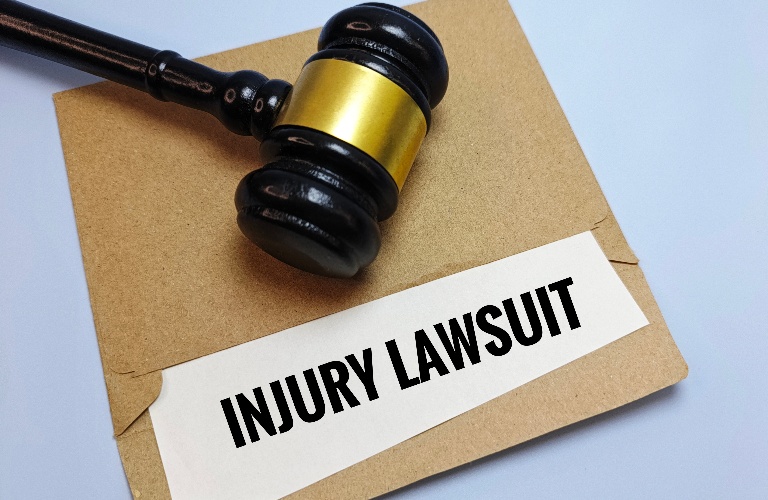Time Limits for Filing a Personal Injury Lawsuit in Illinois: What You Should Know
Picture this. You are injured in a car crash, or maybe you slip on a wet floor in a store. At first, your main concern is healing. You focus on doctor visits, physical therapy, and getting back to normal life. Weeks turn into months. Then, you find out there is a strict deadline for filing a personal injury lawsuit in Illinois, and it has been counting down the entire time.
Missing that deadline can mean losing your right to seek any compensation. The law in Illinois is clear about how long you have to take legal action, but it can be confusing if you do not deal with it every day. That is why having an attorney who understands these timelines can make such a difference.
Attorney Michael J. Brennan has been representing injury victims in Illinois for decades. If you have been hurt because of someone else’s negligence, call his office now so you do not risk running out of time.
What the Statute of Limitations Means in Illinois
The phrase “statute of limitations” sounds like something from a legal textbook, but it is simply a rule that sets the amount of time you have to file a lawsuit. In most personal injury cases in Illinois, that time frame is two years from the date the injury happened, according to Illinois law 735 ILCS 5/13-202.
This applies whether your case involves a traffic accident, a fall on someone’s property, or any other incident where another person’s actions caused you harm. If you file even one day late, the court will likely refuse to hear the case. That is true even if your evidence is strong and the other party was clearly at fault.
Situations Where the Deadline Can Change
The two year rule is common, but it is not absolute. Certain situations can extend or shift the filing period. Understanding these exceptions could be the difference between being able to file a claim and having no legal recourse at all.
- When the Injury Is Discovered Later: If the injury or its cause was not obvious right away, the clock may start from the date you learned about it or reasonably should have discovered it
- Cases Involving Minors: If the injured person is under 18, the countdown begins when they turn 18, giving them until age 20 to file a lawsuit.
- When the At-Fault Person Leaves Illinois: If the person responsible moves out of the state after the injury, the time they are gone generally does not count toward the two year limit.
- Medical Malpractice: Medical malpractice lawsuits have their own rules. You typically have two years from the date you discover the injury, but no more than four years from the date of the actual malpractice.
- Wrongful Death: In most wrongful death cases, you have two years from the date of death to file the claim.
- Claims Against Government Agencies: When suing a city, county, or state agency, the rules are much stricter. In many cases, you must file a formal claim within one year.
Knowing these exceptions can make all the difference, which is why speaking with an attorney early is the safest way to protect your case.
Why Waiting Can Hurt Your Case
It is risky to wait until the deadline is close. Once the statute of limitations passes, you cannot file a lawsuit at all. Even before that point, delays can weaken your case.
Over time, witnesses may forget details or become hard to locate. Physical evidence can be lost or damaged. Important documents might disappear. Insurance companies may use any delay as an advantage to reduce or deny your claim. Last minute filing also puts unnecessary pressure on you and your attorney, which can make it harder to prepare a strong case.
Steps to Safeguard Your Legal Rights
You can protect your claim by taking a few practical steps right after an injury:
- See a doctor immediately, even if you are unsure how badly you are hurt.
- Keep all records, including bills, reports, and photos from the scene.
- Avoid giving detailed statements to an insurance company before speaking with a lawyer.
- Contact an injury attorney as soon as possible so they can track the filing deadlines.
- Stay organized so you can provide your lawyer with all the necessary documents.
Taking these actions early gives your attorney the tools they need to build the strongest case possible.
Why Michael J. Brennan Is the Right Choice

Michael J. Brennan has represented clients in Chicago, Cook County, and across Illinois for many years. He knows how quickly deadlines can approach and how important it is to act before the window closes. His team has an impressive track record of success and works to investigate cases thoroughly, negotiate with insurance companies, and file lawsuits promptly when needed.
If you have been injured and are unsure how much time you have left to take legal action, reach out today. The sooner you get help, the better your chances of building a strong case.
Take Control Before the Deadline Passes
The statute of limitations in Illinois can be unforgiving. Once time runs out, there is no second chance to file your lawsuit. Acting quickly protects your rights and gives your attorney the best opportunity to recover the compensation you need.Do not let the clock decide your future. Call Attorney Michael J. Brennan today to arrange your free consultation and take the first step toward securing justice.


